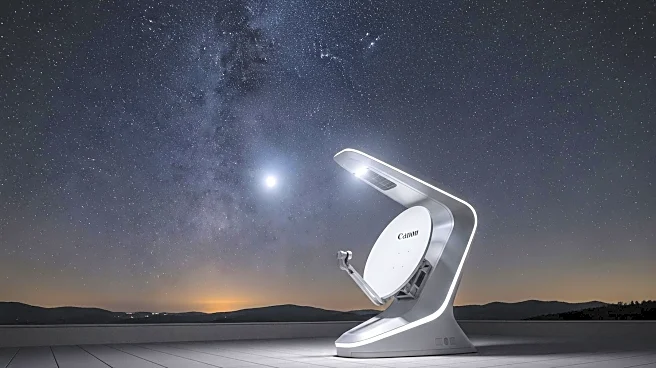What is the story about?
What's Happening?
Italy is evaluating its position on satellite communications as it faces delays in the European Union's IRIS² program. A report from Italy's space policy office highlights concerns about underrepresentation in the IRIS² program, a planned public-private communication constellation. SpaceX has offered Starlink services to Italy, raising questions about whether the country should rely on Starlink while waiting for IRIS². Italy is also considering developing its own national telecommunications constellation, MERCURIO, but details on the project remain limited. The Italian government is in talks with SpaceX, although no contracts have been signed.
Why It's Important?
Italy's decision on satellite communications will impact its technological independence and strategic positioning within Europe. Relying on Starlink could provide immediate benefits in terms of connectivity, but it may also increase dependence on U.S. technology. Developing a national constellation like MERCURIO could enhance Italy's sovereignty and innovation capabilities, but it requires significant investment and time. The outcome of these decisions will affect Italy's role in European space policy and its ability to compete in the global telecommunications market.
What's Next?
Italy is expected to make a decision on whether to pursue the MERCURIO project or rely on Starlink later this year. The government will continue to evaluate interim solutions while awaiting the full operational capacity of IRIS². Stakeholders, including the Italian Space Agency and European partners, will be involved in discussions to balance national ambitions with European industrial participation. The decision will likely influence Italy's future collaborations and investments in space technology.
Beyond the Headlines
The situation underscores the tension between national sovereignty and reliance on international partnerships in strategic sectors like satellite telecommunications. Italy's approach to balancing European and U.S. interests reflects broader challenges faced by countries seeking to maintain independence while benefiting from global technological advancements. The decision could set a precedent for other European nations considering similar dilemmas in space policy.

















